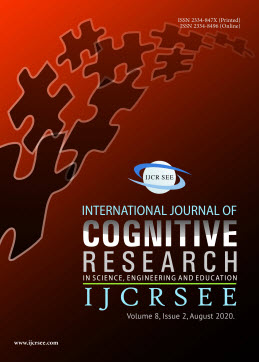VALUE-SEMANTIC BASES OF IDEAS ABOUT THE PROFESSION AND SATISFACTION WITH THE PROFESSION OF HIGHER SCHOOL TEACHERS
VALUE-SEMANTIC BASES OF IDEAS ABOUT THE PROFESSION AND SATISFACTION WITH THE PROFESSION OF HIGHER SCHOOL TEACHERS
Author(s): Vlada I. PishchikSubject(s): Higher Education
Published by: Удружење за развој науке, инжењерства и образовања
Keywords: ideas about the profession; satisfaction with the profession; teachers; values; life meanings; semantic space
Summary/Abstract: The business culture in the educational system remains conservative, despite the fact that the values of tolerance are wide-spread in the world. This affects the transformation of ideas about the profession of teachers. The article establishes the relationship of ideas about the profession and satisfaction with the profession with the values and meanings of university teachers. It is assumed that in modern conditions of higher education, values and life meanings may differ among teachers with different ideas about the profession. The study sample consists of 270 university teachers aged between 25 and 65 years, work experience from 3 to 25 years, 150 women and 120 men. We used the questionnaire of professional satisfaction (Kissel), the method of measuring values (Schwartz), the semantic differential (Osgood), and the method of identifying life meanings (Kotlyakov). We defined groups of teachers with a neutral view and a positive view of the profession, with varying degrees of satisfaction with the profession. As a result, it was found out that the group of teachers with a neutral attitude to their profession has the most manifested values: conformity, hedonism, security, and meanings: hedonistic, status, and family. The group of teachers with a positive view of the profession, has the values of independence, achievement and security, combined with the meanings: altruistic, self-realization, family and cognitive. It is concluded that university teachers with positive ideas about the profession are more altruistic about their activities, and teachers with neutral ideas about the profession are pragmatic about it.
Journal: International Journal of Cognitive Research in Science, Engineering and Education (IJCRSEE)
- Issue Year: 8/2020
- Issue No: 2
- Page Range: 69-81
- Page Count: 13
- Language: English

